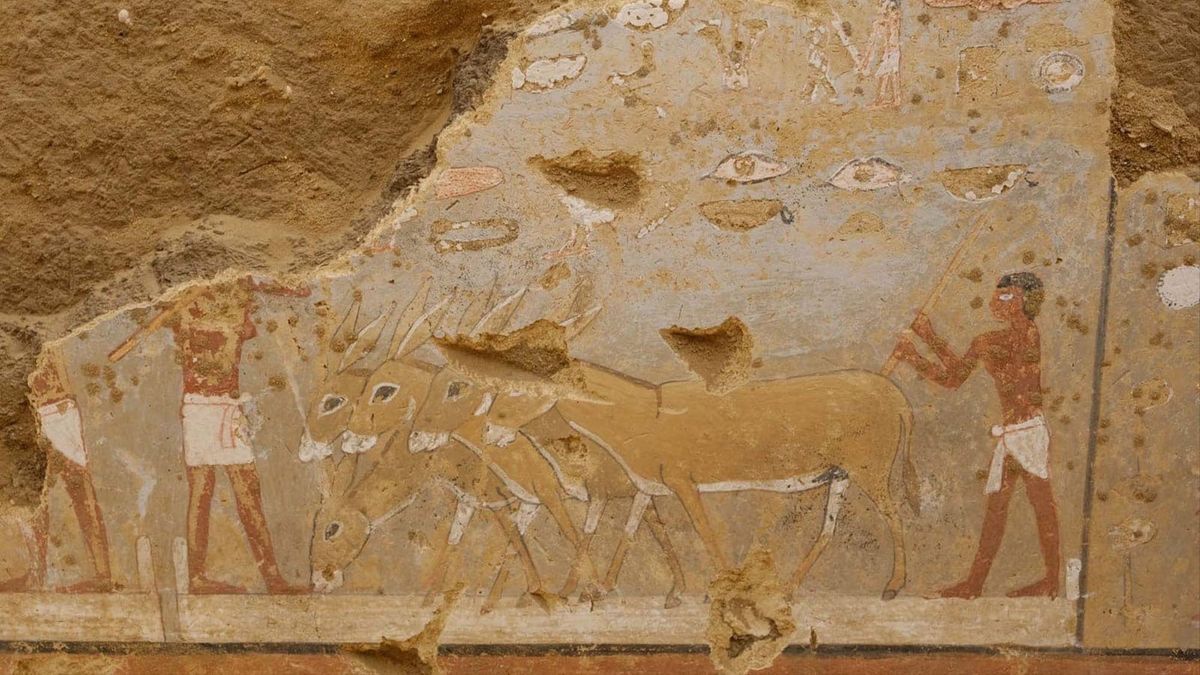Archaeologists in Egypt have discovered a 4,300-year-old tomb with remarkable wall paintings illustrating everyday life. The tomb is located at Dahshur, a site with royal pyramids and a vast necropolis that’s about 20 miles (33 kilometers) south of Cairo. When the team returns to the field, they plan to excavate the burial shafts to see if any mummies remain.
The mud-brick tomb is known as a mastaba, a rectangular structure with a flat roof and sloping sides. Inside, the team found wall paintings depicting scenes of life in ancient Egypt, such as donkeys threshing grain by trampling over it, ships sailing the Nile river, and goods being sold at a market, the Egyptian Ministry of Tourism and Antiquities said in a statement.
Dumb question: how do they know it’s a tomb before they find a burial? What evidence points to that conclusion?
What they found is a mastaba, which were used as tombs - and pretty much for nothing else - for thousands of years in Egypt, in an area that was used for other tombs.
So, this would be like finding an arch shaped stone with a name on and flowers in front in a modern day cemetery. How do you know that it is a grave stone? You don’t, but it would be a pretty good guess, and if you guessed that it was anything else, you’d probably be wrong.
Thanks!



